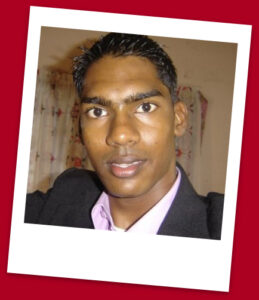“The fight against NCDs requires our time, energy and effort”
September 19 As heads of government come together for a high level meeting at the United Nations in New York, Ryan Bachoo, 22, a Commonwealth Correspondent from Trinidad & Tobago, urges leaders to re-commit to the fight against non-comunicable diseases.
As heads of government come together for a high level meeting at the United Nations in New York, Ryan Bachoo, 22, a Commonwealth Correspondent from Trinidad & Tobago, urges leaders to re-commit to the fight against non-comunicable diseases.
Perhaps the most troublesome thing about non-communicable diseases is that any family you visit – in any home and any part of the world – will likely have been affected by the suffering caused by them.
Take a flip through the pages of your own family history, and you should be very happy if you can’t find at least three relatives suffering or who have died from such diseases.
Non-communicable diseases include heart disease, stroke, cancer, asthma, diabetes, chronic kidney disease, osteoporosis, Alzheimer’s disease, cataracts and so much more. That’s a very long list.
HIV/AIDs, the main communicable disease which has aroused concern over the last decade, is just one virus the world came together to fight, but the task of fighting non-communicable diseases will be monumental.
On September 19-20, heads of government around the world come together in New York in a United Nations High Level Meeting to discuss what can be done by government leaders around the world to curb the rate of death and suffering from non communicable diseases.
In Part I of this two part article, I outlined the challenges Caribbean heads face as they look to convince the UN that non-communicable diseases are reaching crisis proportions. In that article, I stated that the major hurdle faced is the financial mess the world is in currently. I remain adamant that the first question the head will face will be: “Why, in such economic turmoil, should we support your efforts in raising awareness about non communicable diseases?”
Above all though, the United Nations should say yes to providing more help. There are many facts that suggest the world should start taking concerted action in the fight against non-communicable diseases. Let it be clear though, while there will be no splashing of cash, a commitment from the UN that it will assist in spreading awareness about such diseases is really what the World Health Organization and the Caribbean requires.
Non-communicable diseases, primarily cardiovascular diseases, cancers, chronic respiratory diseases and diabetes, are responsible for 63% of all deaths worldwide (36 million out 57 million global deaths), according to the World Health Organization. When those figures are put up against others, it leaves very little doubt that the world is in the middle of a health crisis.
But it gets worst: 80% of NCD deaths occur in low and middle-income countries. Furthermore, 29% of NCD deaths occur in people under the age of 60 living in low- and middle-income countries. Taken as a whole the incidence rate makes no distinction for gender, as both groups are equally affected.
These are very disturbing facts, not because of the rate of deaths, but more so because non-communicable diseases have been destroying mankind for centuries. Until now, no real effort has ever been made to address the epidemic. NCDs are largely preventable by means of effective interventions that tackle shared risk factors, namely: tobacco use, unhealthy diet, physical inactivity and harmful use of alcohol (World Health Organization).
However, as fundamental as the change may be, it is often very costly, and is considered not only a health problem but a development challenge as well. NCDs force many people into or entrench them in poverty due to the catastrophic expenditures on treatment.
Tobacco use is a major factor, because the habit kills nearly six million people a year. It is estimated that by 2020 this number will increase to 7.5 million, accounting for 10% of all deaths. Bearing this in mind, it remains critical that the UN agrees to raise awareness about NCDs, because raising awareness is the first step in fighting of this epidemic.
The task will be hard. Finances will be limited. The initiative will require folks who are willing to give time, energy and effort. The path will not be for the faint hearted.
However, if there is one aspect of life we can all take inspiration from, it is that at a critical decade in the world’s history, when HIV/AIDs threatened to run riot through our young people, people somewhere, somehow stood up and started the fight, and then some more stood up, and then some more stood up. And very often, these people are not the politicians.
…………………………………………………………………………………………………………………
About me:
“Hi, I am Ryan Bachoo, a journalist and public relations officer from Princes Town in Trinidad and Tobago. I currently work with the West Indies Cricket Board.
“I am currently working as a broadcast journalist for Cable News Channel 3. I also write on various talking points and current problems facing the world including international politics and the issues of a depleting economy.”
…………………………………………………………………………………………………………………
Opinions expressed in this article are those of the author and do not necessarily represent the views of the Commonwealth Youth Programme. Articles are published in a spirit of dialogue, respect and understanding. If you disagree, why not submit a response?
To learn more about becoming a Commonwealth Correspondent please visit: http://www.yourcommonwealth.org/submit-articles/commonwealthcorrespondents/
…………………………………………………………………………………………………………………



